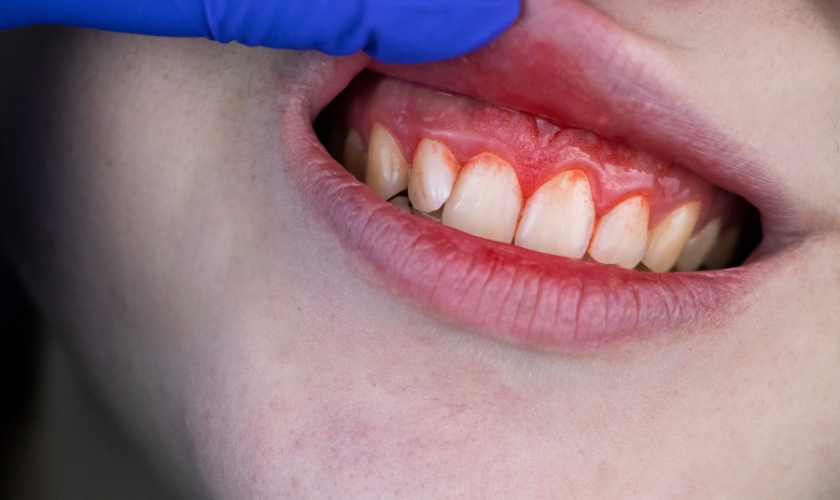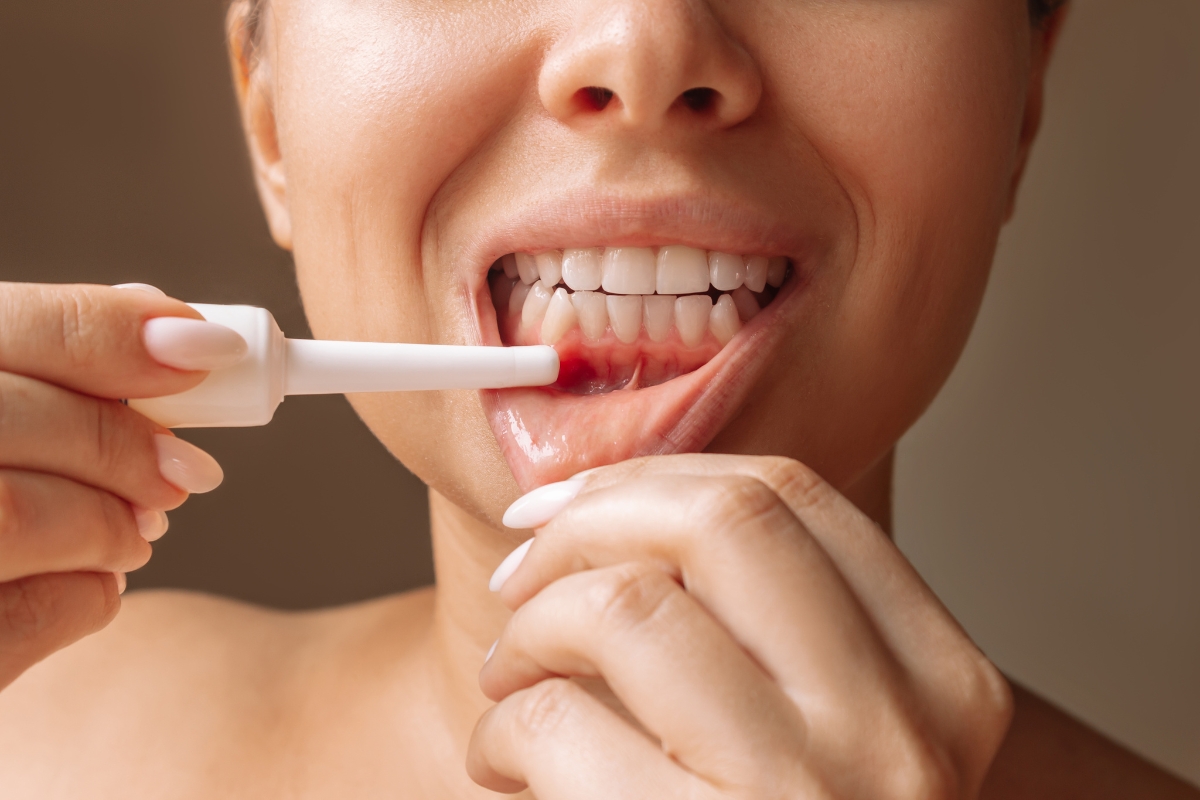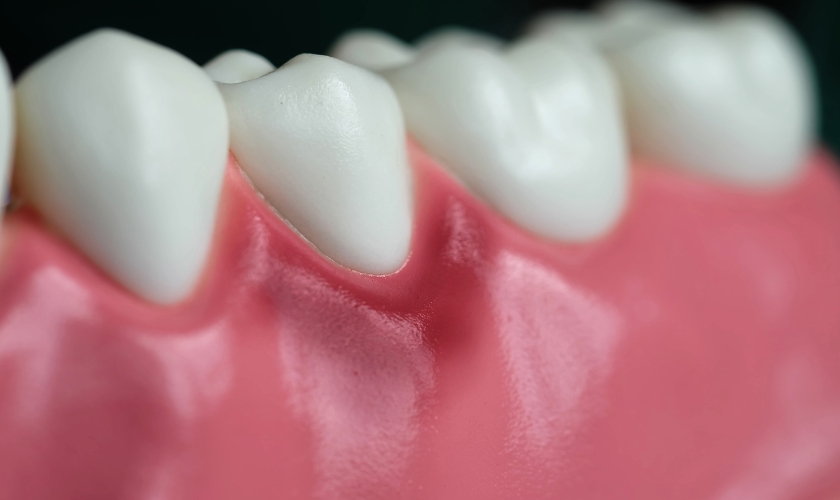
Flashing a healthy smile is a confidence booster, but gum disease can threaten that. This condition, also known as periodontal disease, affects millions of adults and can lead to serious consequences, including tooth loss. But fear not! Here’s a comprehensive guide to understanding gum disease, its potential impact on your teeth, and, most importantly, how to keep your pearly whites healthy and strong.
Understanding Gum Disease: From Gingivitis to Periodontitis
Gum disease isn’t a single entity; it progresses through stages, each requiring different levels of attention and care. The first stage, gingivitis, is the mildest form. It’s caused by plaque, a sticky film teeming with bacteria that forms on your teeth if you don’t brush and floss regularly. This plaque irritates the gums, causing them to become red, swollen, and prone to bleeding when you brush.
The good news: gingivitis is reversible! With proper oral hygiene, including brushing twice daily, flossing once a day, and regular dental cleanings, you can eliminate the plaque and reverse the inflammation. It’s important to pay attention to the signs of gingivitis, such as bleeding gums, as catching it early can prevent it from progressing to a more serious stage.
Periodontitis has several stages, ranging from mild to severe, and in advanced cases, it can destroy the bone surrounding your teeth, making them loose and eventually leading to tooth loss. It’s crucial to seek professional treatment if you suspect you have gum disease, as early intervention can help prevent irreversible damage and maintain your oral health.
Remember, maintaining good oral hygiene habits and visiting your dentist regularly is key to preventing gum disease and maintaining a healthy smile for life. Your dentist can provide personalized recommendations and treatments to help keep your gums healthy and protect your teeth from the damaging effects of gum disease.
Signs and Symptoms: Is Gum Disease Lurking in Your Mouth?
Gums That Bleed Easily: Healthy gums should not bleed when you brush or floss. If you see blood, it could indicate the presence of gingivitis, the earliest stage of gum disease.
Persistent Bad Breath (Halitosis): Gum disease can cause persistent bad breath that doesn’t go away with brushing or mouthwash. This is often due to the buildup of bacteria in the mouth.
Receding Gums: As gum disease progresses, you may notice that your gums are pulling away from your teeth, making your teeth appear longer. This is a sign of advanced gum disease and should be addressed promptly.
Loose Teeth: Gum disease can cause the supporting bone and tissues around your teeth to break down, leading to loose teeth. If you notice any looseness or changes in the alignment of your teeth, it could be a sign of advanced gum disease.
Pus Between Teeth and Gums: The presence of pus, a thick, yellowish fluid, between your teeth and gums is a sign of infection and should be evaluated by your dentist immediately.
Pain When Chewing: Advanced gum disease can cause pain or discomfort when chewing, as the gums and supporting tissues become more damaged.
Will I Lose My Teeth if I Have Periodontal Gum Disease?
Having periodontal (gum) disease doesn’t necessarily mean you will lose your teeth, but it does increase the risk. Gum disease is a leading cause of tooth loss in adults. This is primarily due to advanced stages of the disease where the gums and bones that support the teeth become severely damaged.
In the early stages of gum disease, known as gingivitis, the condition is often reversible with proper dental care and improved oral hygiene. However, if left untreated, gingivitis can progress to periodontitis, a more severe form of gum disease. Periodontitis can lead to the formation of pockets between the teeth and gums, which can become infected. Over time, this infection can cause the gums to recede and the bone supporting the teeth to deteriorate, potentially leading to tooth loss.
The Risk Factors: Who’s More Susceptible to Gum Disease?
Poor oral hygiene: Neglecting to brush twice daily and flossing once a day allows plaque to build up on your teeth. Plaque contains bacteria that can irritate the gums and lead to gum disease.
Smoking and tobacco use: Tobacco products contain toxins that harm the gums and can weaken the immune system’s ability to fight off infection. Smokers are at a higher risk of developing gum disease than non-smokers.
Genetics: Some individuals may be genetically predisposed to gum disease. If you have a family history of gum disease, you may be more susceptible to developing it yourself.
Certain medical conditions: Conditions such as diabetes can affect the body’s ability to regulate blood sugar levels, which can increase the risk of gum disease. Hormonal changes during pregnancy can also make gums more sensitive and prone to inflammation. Additionally, some medications can reduce saliva flow, which plays a role in protecting the gums.
How to Prevent Gum Disease and Save Your Smile
The good news is that gum disease is largely preventable. With periodontal gum disease treatment in Metairie, LA, you can easily combat gum disease. Also, with a good oral hygiene routine and healthy lifestyle choices, you can take one step towards fighting gum problems. Here are some key strategies to help you keep your gums healthy and protect your smile:
Brushing Twice Daily: Brushing your teeth twice a day is crucial for preventing gum disease. Use a soft-bristled toothbrush and fluoride toothpaste to remove plaque from the surfaces of your teeth gently and along the gum line.
Flossing Once Daily: Flossing is just as important as brushing, as it helps remove plaque and food particles from between your teeth, where your toothbrush can’t reach. Floss gently to avoid damaging your gums.
Regular Dental Checkups and Cleanings: It’s important to visit your dentist regularly for checkups and professional cleanings. Your dentist can remove any tartar buildup that brushing and flossing may have missed and check for early signs of gum disease.
Maintain a Healthy Diet: A balanced diet rich in fruits, vegetables, and whole grains can help support healthy gums. These foods provide essential nutrients that can help your body fight off infection and inflammation.
While periodontal gum disease can lead to tooth loss if left untreated, it is not an inevitable outcome. With proper oral hygiene, regular dental checkups, and timely periodontal gum disease treatment, you can prevent the progression of gum disease and preserve your teeth. Remember, early detection and intervention are key, so if you suspect you have gum disease, schedule a visit with your dentist as soon as possible. By taking proactive steps to care for your oral health, you can protect your smile for years to come.





